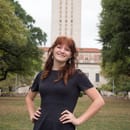I began reading philosophy in the sixth grade. My father was finishing his undergrad at Georgia State University in Atlanta when I was a child, and he had enrolled himself in his first philosophy course by the time I entered middle school. Whenever he did any of his reading for his classes, he would meander his way from his office to a make-shift sitting area in the garage next to ash tray. He often smoked cigarettes while he read, so the vast majority of the conversations I had with my dad took place next to an open book resting against a workshop table and with smoke filling the air as he puffed out after every generous inhale of his cigarette. To this day I still associate the smell of burning tobacco with sitting outside in that garage with my father.
I remember picking up his copy of Rene Descartes’ Medications on First Philosophy one night, while he read another book, smoking as usual. I remember flipping through the pages gently and finally asking my father to explain to me what the book was about. From that moment forward, philosophy became addictive for me. I loved the richness of the material. I loved how every insight it could share portrayed the world in a new way. I loved how philosophy prescribed normative behaviors with substantive foundations behind their dictates. I loved how easily it encouraged whoever grappled with the material to become lost in a sea of open-ended questions and inquiries. Philosophy is the only pursuit that I know of still that can have its participants become utterly lost, but almost innocently and childishly so, and those same participants will come to understand more than they could have possibly hoped to know. Philosophy reveals just as much as it conceals, and I was fortunate enough to become engrossed by it. I took up the identity of the philosopher quickly, and put it at the forefront of my identity. Grace was quintessentially a philosopher. What better way to describe me?
By the time I got to college, I learned that I couldn’t just be a philosopher. Coming to a realization about the state of academia and all that entails becoming a professional philosopher, such as publishing pressures, I decided that obtaining a PHD and being a philosophy professor was not a likely career option for me. While I was never disillusioned about my job prospects when I first wanted to be a philosophy professor, I never accounted for the external pressures to publish academic works. If philosophers are dedicated to finding truth, then it seems inherently wrong that modern-day academia demands professors of philosophy to publish philosophical works, which could cause philosophers to subvert, if not completely invert, truth as their ultimate purpose for writing. The process of discovering truth is fragile and illusive. I do not want to participate in a system that threatens truth and the pathways to it in any way.
So I dabbled in new areas of study. I came to economics through the advice of my grandmother and my interest in economic theory. Slowly, but surely, I began to identify with economics, too. However, I never considered myself an economist before a philosopher. Philosophy still reigns in my life. I always thought, and still do think, of myself as a philosopher studying economics.
However, the more I ventured into upperclassman and graduate-level philosophy classes and less into economics classes, the more I realized how much the external world thinks of me as an economist before a philosopher. In my Studies of Political Philosophy and Theories class, for example, the professor refers to me in economic matters and to name and confirm economic terminology. Whenever I speak in class, the expectation of the professor and students is that I can draw a visual representation of whatever idea I am trying to convey, either through a graph, diagram, or table. For example, “I think this calls for a graph, Grace!” one classmate exclaimed to me last week when I tried to explain Spinoza’s metaphysical modality. My characterization is an economist doing philosophy, not vis versa.
Perhaps students in philosophy circles are more sensitive than economic majors at defining identity differences between individuals. In this manner, they possibly seek to maximize, or even minimize, the quality of an intellectual dialogue by diversifying the conversational input that is given by unique persons engaging in a similar topic. What makes me me to a group of people is not what inherently is true about my character, in this case, but is what separates me from everyone and everything else. To the group, I am what and who everyone else is not.
Is being defined this way respective of who I am, though? I think there’s something to be said for group-affirmed identities in this matter. Self-identities are not valid without group confirmation in this model. Can I truly claim to be something that other people—society—do not recognize me as? Do others know me by the identity I give myself independent of others’ influences, or do others know me by the identity they see in me? Other people are not constructing my identity for me. Rather, they are choosing to recognize what differentiates me from everyone else. I am truly my identifiers, my unique qualities that pull me away from the crowd of unremarkable, undistinguishable people.
I still think I am a philosopher first, though. In any case, I have at least one saving grace in my quarter-life existential crisis this identity-recognition topic brought on. “You clearly are a philosopher who incorporates economics. You’re like a philosopher with an economic booster pack,” a dear friend told me. I guess for now I can still claim to be a philosopher, as long as both he, supplemental for the group (or Others, if we want to be more continental in this philosophy), and me think of me as such.

